Previously called Windows Live Search and MSN Search, Bing is Microsoft’s search engine. Competing with Google is a tricky business as we saw with the comparison search engine (CSS) overhaul on Google Shopping. Despite this, […]
Previously called Windows Live Search and MSN Search, Bing is Microsoft’s search engine.
Competing with Google is a tricky business as we saw with the comparison search engine (CSS) overhaul on Google Shopping. Despite this, Bing has clawed its way to second place; creating a decent search engine that delivers results with real-world context.
Are Bing PPC Ads worth it?
You don’t need to research the global search engine market share to know that Google is winning by a landslide. After all, users don’t “Bing it” or “Yahoo it”. They “Google it”.
Just in case you’re tempted to research the market share, here it is:

What’s your instinct after seeing this graph? Most advertisers wouldn’t give Bing a second thought, but in our opinion, that’s a mistake.
While it’s true that Google has tremendous reach, we tend to ignore the fact that due to its popularity two major things slip past our notice:
- Competition is usually high
- Cost-per-clicks (CPCs) are also potentially high.
We’re not telling you to pull your ads from Google; on the contrary. Google is a goldmine for clicks and conversions if campaigns are executed correctly. With great product data and bid strategy, you’ll find that your ads will appear for the most relevant searches at all the right times.
What Bing can do, however, is open you up to millions of users that are not found on other search engines.
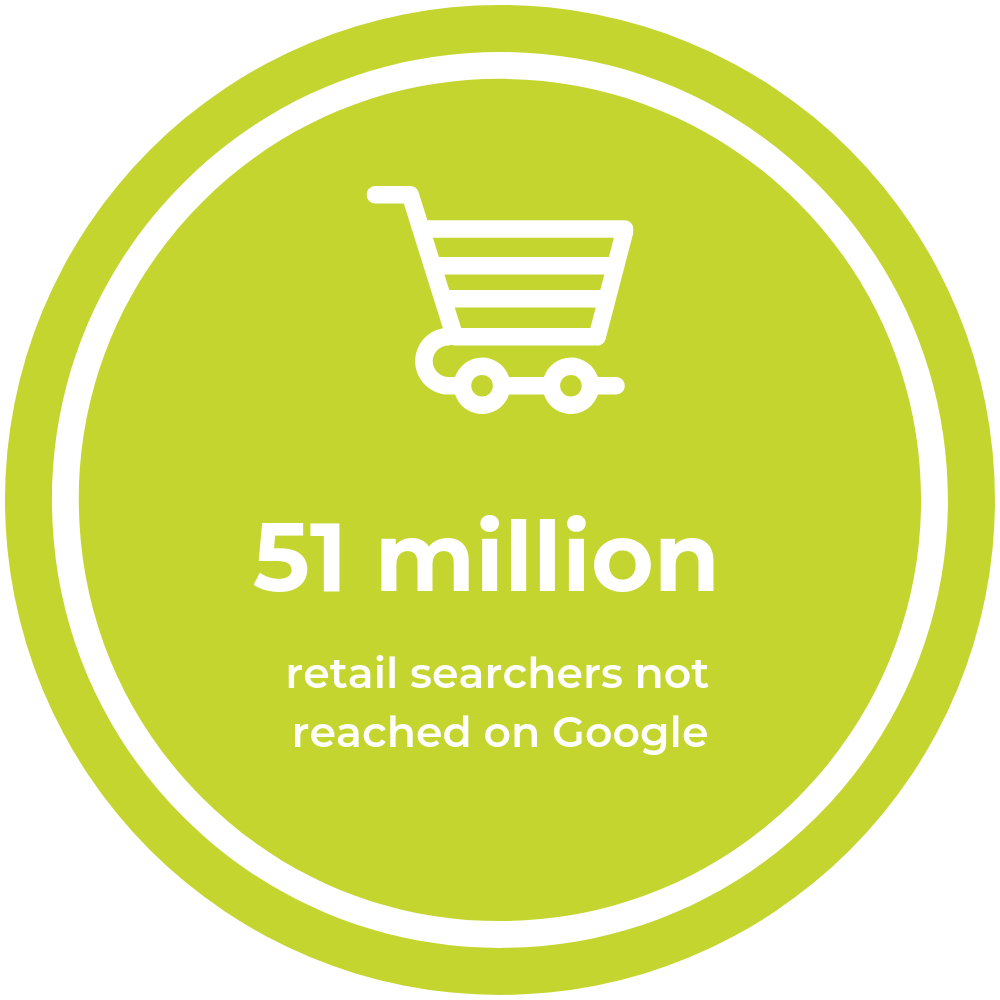
Most notably, there are a whopping 51 million users on Bing that are not reached by Google. It’s surprising, but when you consider that Windows 10 PCs and mobile devices use Bing as their default search engine, it makes sense.
Here are a few more statistics that demonstrate the reach Bing provides:
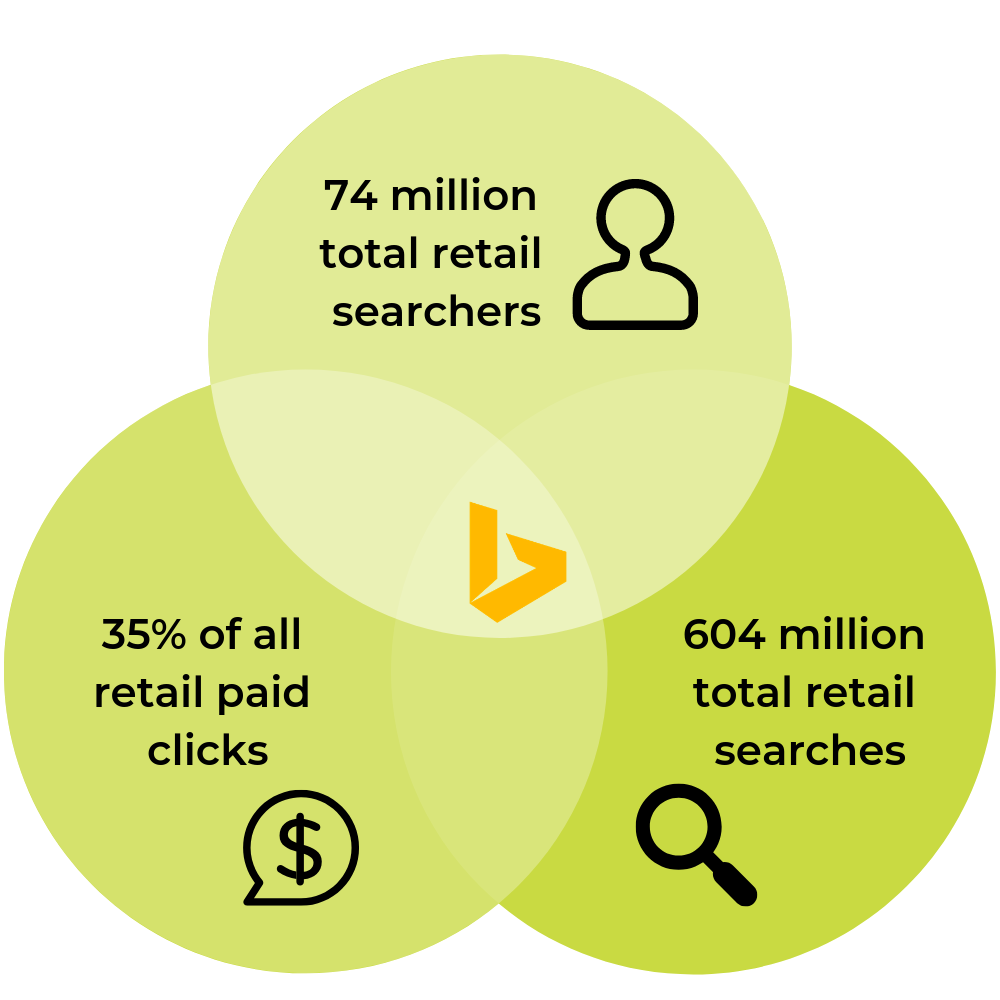
There are 74 million total retail searchers and 604 million total retail searches (desktop, US) and 404 million monthly searches in the UK (Comscore).
Now, when you filter in the fact that Bing advertises across Yahoo and AOL too, meaning your PPC ad will be seen on all three, you can understand why it is a valuable place to advertise.
Are Bing PPC Ads right for your business?
With 51 million retail searchers on Bing not reached by Google, it’s clear that Bing Ads could be a great opportunity, but is it right for your business?
Bing tends to attract an older audience, which makes it the perfect place if your products are suited to those aged 35 and above:
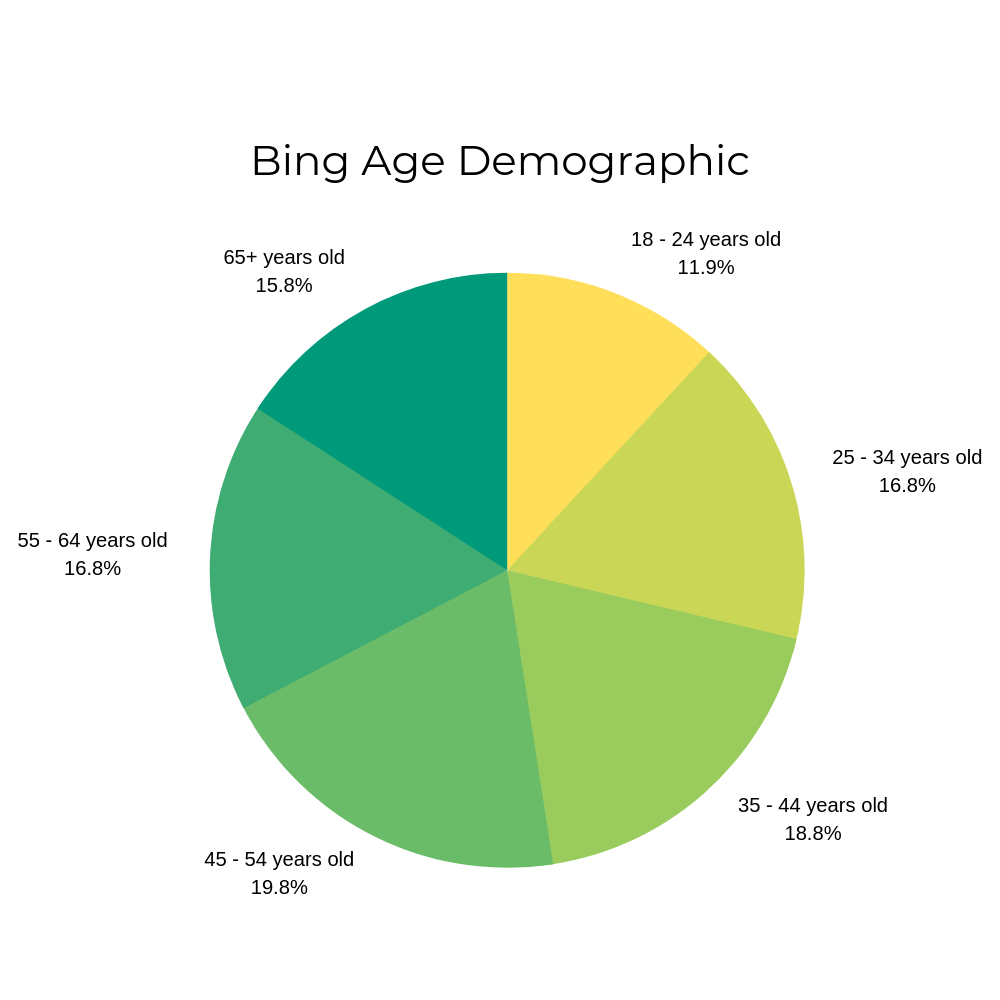
In addition, Bing reported that over one-third of the Bing Network retail audience has a household income of $100,000 (Roughly £76,000) or more (US data).
So, if your demographic is older and more affluent, we recommend that you consider Bing. It’s not for everyone – certainly retailers and brands who target a younger demographic wouldn’t see as much gain from this paid search channel.
Bing Ads vs. Google Ads: a comparison
Bing does not provide the reach that Google does – that’s the harsh truth about the search engine industry. They decided, however, to go head-to-head with the behemoth.
People like to tease the search engine, but the truth is that the search engine is constantly climbing the ranks. Although Google is superior, there are many factors that make it a great place to advertise.
1) Less competition
It could be said that because of Google’s market share, the competition on the channel is fierce. Bing on the other hand, because of its smaller market share, results in your ads being placed better. It makes it a lot easier to dominate the space.
Of course, this also means that you'll get less traffic than on Google but you can't always have your cake and eat it.
2) Better targeting
Bing allows you to target specific audiences based on device type and operating system. This means that you can choose not to display ads on desktop if you only want to target mobile users. Google Ads, on the other hand, doesn’t offer this type of targeting – you cannot exclude certain devices.
3) Keyword tools
Although both search engines offer a keyword tool, broad match and negative keyword targeting, Bing, understandably, has a much lower traffic volume than Google.
4) Cost of CPCs
WordStream estimates that Bing Ad’s CPCs are on average 33.5% cheaper than Google. In addition, they are often in better positions than on Google with a higher click-through-rate (CTR).
5) More granular control
Bing Ads offers more granular control at campaign and ad group level. For example, they allow advertisers to assign different campaigns to different time zones so that if you sell internationally, you can drive the best ROI possible.
In addition, although Google makes you set your network, location, ad scheduling, language and ad rotation settings at campaign level, Bing Ads allows you to be more granular. I.e. they allow advertisers to adjust these settings for ad groups so that you don’t need to create a new campaign.
6) More transparency and control over search partners
Bing provides much more control and transparency over the disclosure of search partners and allows advertisers to see exactly where their traffic is coming from. They allow you to measure metrics such as impressions and conversions with detailed reports on the performance of each partner.
7) Close variants are not mandatory
Once upon a time on Google, the close variant matching target was optional. It was then made permanent, thereby killing exact and phrase match keywords. Close variants included common misspellings, plurals and grammatical stemmings. While the close variants expanded the reach of the exact and phrase match keywords by about 7%, WordStream reported that many advertisers disliked it because they couldn’t be as precise when targeting by keyword.
Bing, on the other hand, makes it optional. You can easily opt in or out at the campaign or ad group level.
8) Import your Google Ads campaign
Bing is smart – they know what users want and how to get them on their team. For those of you using Google Ads, you’ll be pleased to know that you can simply import your existing Google Ads campaigns. This removes the need to build from the ground up and acts as an incentive for advertisers.
Be careful though – there are mistakes to be made and pitfalls to be fallen into. This article outlines how best to import from Google Ads.
Tips for using Bing Ads
Product data management
Like any other PPC platform, its important that your product data is in top form. Using a platform such as Intelligent Reach can help you automate and manage your product data.
There are three main attributes that you need to keep on top of:
- Titles
- Categories
- Images
For more information about product data management and the steps you need to take to ensure your campaigns are fetching a high ROI, have a read of our recent article:
Experimentation
Once your product data is correct and complete, you'll need to focus on optimising it. Instead of using best practice or guesswork, it's often best to experiment.
Find out more about experimenting on product data for your PPC campaigns:
Learn more about how to experiment with product data here:
Other tips
- The product feed is called a “catalog”
- Manually uploaded files must be in .txt file format
- Bing Merchant Centre only accepts products that are in-stock, so ensure to remove out-of-stock products before uploading the catalogue.
Does Bing do local inventory ads?
Maybe local inventory has been on your mind or maybe it hasn’t. Many are realising that it’s a great way to increase brick and mortar footfall but getting that local stock information is no easy task.
Not everyone is quite there yet. But for those that are, Bing has taken a page out of Google's book and has begun doing local inventory ads. Currently being piloted in the US, they will help increase brick and mortar sales and footfall once available in the UK and elsewhere.
Download our full guide on how to implement online to offline strategies:
{{cta('25c8362c-34a5-4e8a-9ec1-076cd957284b')}}
Conclusion
Bing PPC Ads have many commendable features; many of which are useful for those wishing to target an older, more affluent demographic. It’s a big opportunity and makes sense in terms of reach.
We do recommend the search engine for those that are already established on Google Ads, as it is still the most important PPC channel. However, if you’ve got a bit of experience, we recommend that you give Bing a go.
It's not so much a case of Bing Ads vs. Google Ads; the two platforms could be useful to your business in their own right. What you'll need to do is judge whether Bing is right for your business.
If you'd like to understand more about how great product data could elevate your PPC campaigns, don't heistate to get in-touch.







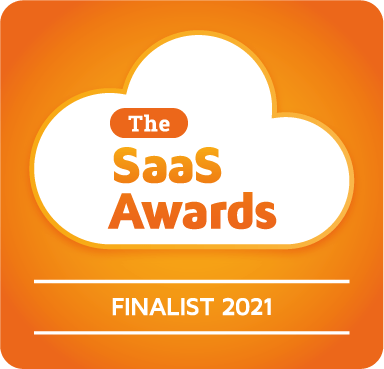
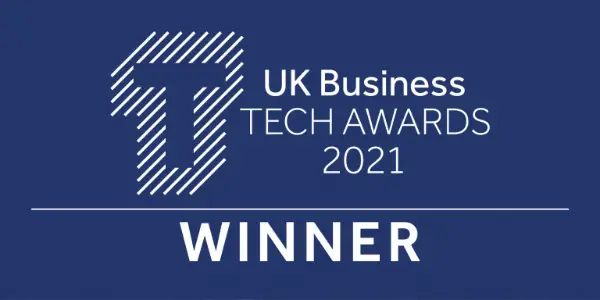
 River Island
River Island